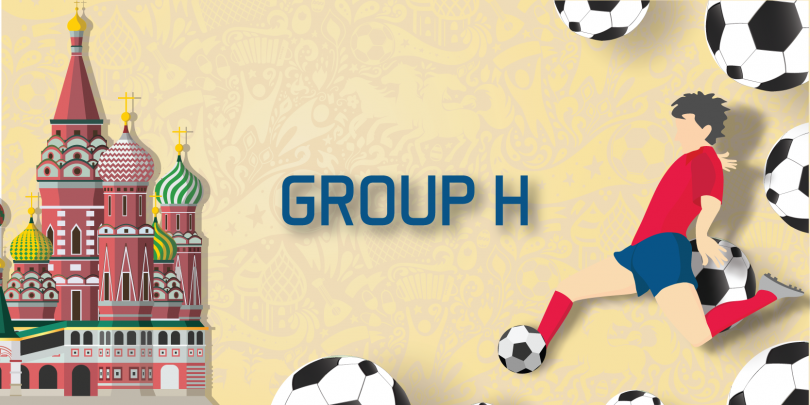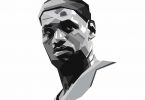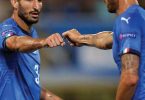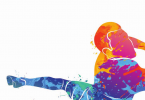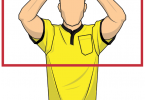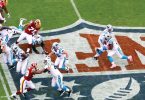Group H
Poland

When we talk about Poland, one name instantly jumps to mind: Robert Lewandowski. As one of the best strikers the football world has ever seen, Lewandowski sometimes carries the whole country’s hopes. He scored 16 goals in World Cup 2018 qualifying, creating a new record for most goals in a single UEFA qualifying campaign, beating Cristiano Ronaldo’s 15 goals set in the same year. His tally represents 57.1% of goals from Poland in the campaign.
As the all-time top scorer for Poland with 52 goals, Lewandowski provides the biggest threat from the Polish squad and his contribution ensured Poland was in Pot 1 for the World Cup finals draw. This season, Lewandowski scored 40 goals in all competitions for Bayern Munich for the third time in a row. The statistics only show that the Polish striker remains in his prime and the World Cup 2018 will be the biggest stage for him to shine.
Poland do have other attacking threats. Kamil Grosicki, the winger with lightning speed, provides options when opponents man-mark Lewandowski. The Hull City player scored one brilliant solo goal in a qualifying game against Romania. Another one to watch is Napoli’s striker Arkadiusz Milik.
Coach: Adam Nawalka
Captain: Robert Lewandowski
FIFA Ranking: 10
Odds: $67.00
World Cup appearances: 8
Best World Cup performance: Semi-finals – 1974, 1982
Senegal

This will be Senegal’s second presence in the World Cup finals after Aliou Cissé, who was captain of the 2002 side under the late Bruno Metsu, guided his team through a difficult qualification group containing Burkina Faso, South Africa and Cape Verde, scoring 10 and conceding only three goals in the process.
In 2002, the dark horse Senegal surprised the world by reaching the Round of 16 at the expense of Uruguay and France, with players like Salif Diao, Papa Bouba Diop and El Hadji Diouf attracting attention from all over Europe. The African country marched on by knocking out Sweden in the Round of 16, eventually falling to turkey in the quarter-finals.
This summer, Senegal’s fate will rely on the performance of their attacking line. Playing 4-3-3, the combination of Kaita Baldé, Sadio Mané and M’Baye Niang is crucial for them.
Much will be expected of Liverpool star Mané, who has been Senegal’s main man for several years and has been compared to El Hadji Diouf, the talisman of the 2002 side.
Coach: Aliou Cissé
Captain: Cheikhou Kouyaté
FIFA Ranking: 28
Odds: $201.00
World Cup appearances: 1
Best World Cup performance: Quarter-finals – 2002
Colombia

After the fading of the golden generation of Colombian football, which included the likes of René Higuita, Carlos Valderrama and Faustino Asprilla in the 1990s, Colombia finally returned to the big stage in Brazil four years ago. Thanks to the amazing performances of James Rodríguez and Juan Cuadrado, who produced the most goals and assists in the World Cup respectively, Colombia reached the quarter-finals before succumbing to host Brazil in a highly controversial match.
In Russia, Colombia will again rely on their star men such as Rodríguez, Cuadrado and Radamel Falcao to repeat the achievement. Their way to Russia was patchy to say the least, as they only sealed their spot on the final day as the fourth placed team in South America. Manager José Pékerman admitted, “Qualifying was really hard.”
The good news is that, after a slow start in Bayern Munich on loan from Real Madrid, largely due to injuries, Rodríguez has gradually rediscovered his form, scoring a fantastic goal in the Champions League semi-final against his former team.
Coach: José Pékerman
Captain: Radamel Falcao
FIFA Ranking: 16
Odds: $41.00
World Cup appearances: 5
Best World Cup performance: Quarter-finals – 2014
Japan

Japan’s hopes in Russia this summer suffered a big hit two month before their opening game when the manager who led the team to qualify, veteran Bosnian-Herzegovinian coach Vahid Halilhodžić, was sacked and replaced by Akira Nishino.
The sacking was not unexpected, but timing is problematic. Japan under Halilhodžić was largely unrecognizable, as the East Asian team have traditionally preferred a possession-based style while Halilhodžić demanded his side look to play on the counter. His drastic reforms saw Japan’s two biggest stars, Keisuke Honda and Shinji Kagawa, dropped from the squad as they failed to fit into this philosophy – or, in other words, they preferred Japan’s traditional approach.
The philosophy caused big debate in Japan, but the timing of the sacking has caused even greater concern. Will Nishino, who hasn’t coached any team in the last three years, have enough time to reorganize the team?
Coach: Akira Nishino
Captain: Makoto Hasebe
FIFA Ranking: 60
Odds: $301.00
World Cup appearances: 5
Best World Cup performance: Round of 16 – 2002, 2010

